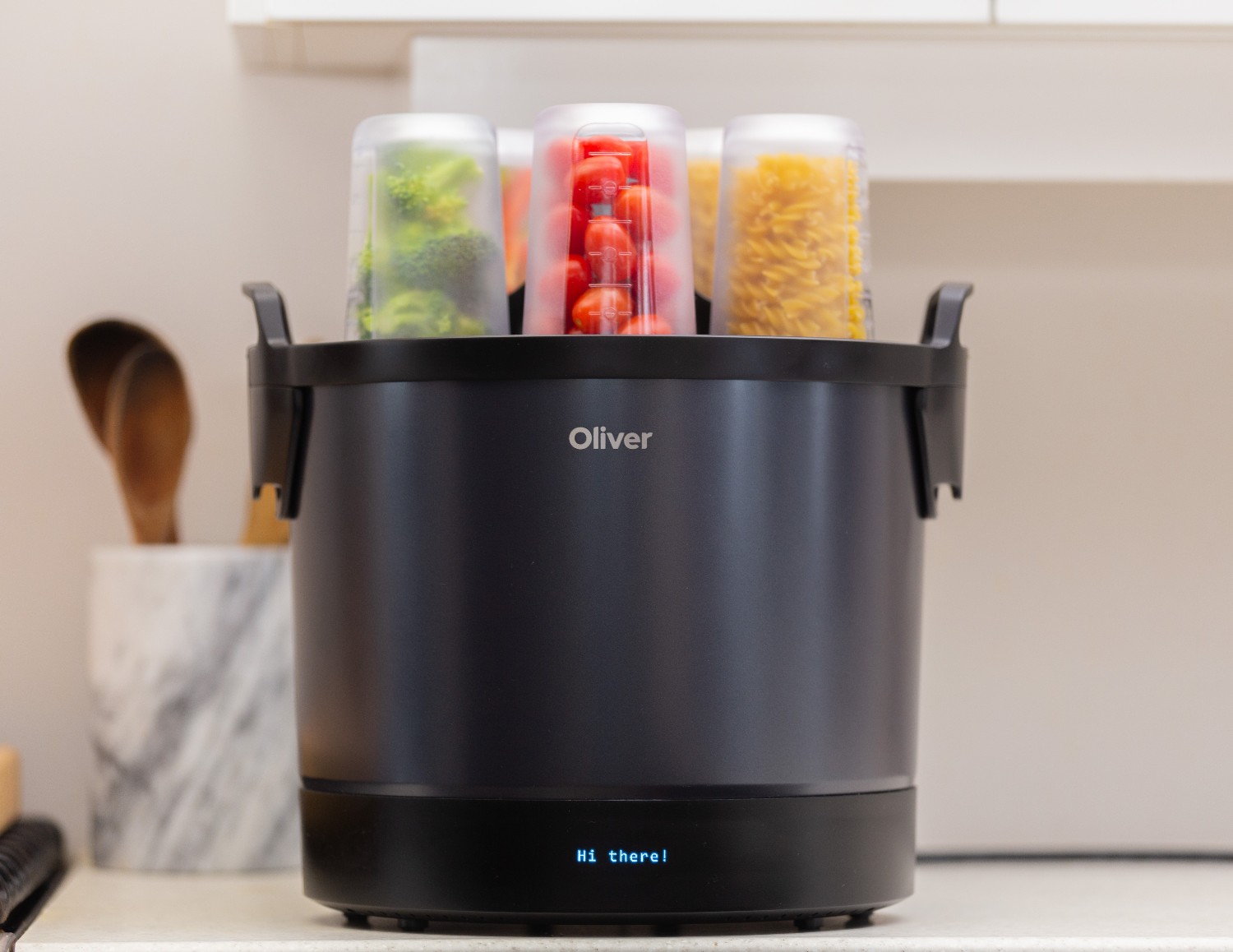Khalid Aboujassoum is a firm believer that good technology – like good food – takes time to prepare.
For nearly 10 years, the Qatar-born entrepreneur has been patiently toiling away on a device he hopes will be the next big thing in the kitchen. Dubbed Oliver, the stovetop appliance looks much like a crock pot and uses machine-learning technology to cook meals from pre-prepared ingredients.
Aboujassoum and a team of engineers at his Ottawa-based company, Else Labs, have worked through five versions of Oliver, and the “robot chef” is finally on the verge of being ready for market. It’s been a long haul, but Aboujassoum is confident the multimillion-dollar R&D effort will be worth every penny.
(Sponsored)

Powered by passion, backed by Ontario Made: Turning bold ideas into entrepreneurial success
Back in the winter of 2018, a brutal cold snap dropped temperatures in Merrickville to -46°C. Michael J. Bainbridge and Brigitte Gall looked outside and told their holiday visitors to

Borden Ladner Gervais LLP and partners lead with generosity
Borden Ladner Gervais LLP (BLG) are no strangers to supporting charities in the nation’s capital. From the Boys & Girls Club of Ottawa to Crohn’s and Colitis Canada to the
“With Oliver, we are taking stovetop cooking to a whole new level,” he says. “We are literally mimicking whatever you would do on the stovetop using a single pot.”
It works like this: users choose a recipe from the Oliver app, then load the ingredients – chopped tomatoes, raw pasta and water, for example – into individual containers on top of the pot. Oliver automatically mixes in the items at predetermined times, cooking and stirring when necessary without any need for human intervention.
Ottawa, as legions of cooking aficionados know, is also the birthplace of another culinary device that’s become a worldwide sensation: the Instant Pot.
Unlike the Instant Pot, Oliver isn’t designed to dramatically reduce meal prep times. But its creators argue their set-it-and-forget-it technology is actually more convenient because users don’t need to hang around the kitchen and toss in ingredients at just the right moment to prevent them from being over- or undercooked.

Aboujassoum’s colleague, Simon Hanington, says Oliver “is closer to Keurig than it is to Instant Pot,” noting the device is “completely autonomous.”
The make-or-break question is whether it will become a household staple like its more famous Ottawa cousin.
Aboujassoum and Hanington are betting it will, in part due to the COVID-19 crisis that’s forcing many families to juggle a myriad of responsibilities such as home-schooling and hosting Zoom meetings while trying to figure out what’s for dinner.
Taking a ‘burden’ away
“For a relatively modest price, you can take all the burden off of families that are working from home,” says Hanington, adding Oliver’s retail cost won’t be revealed until closer to its debut. “It’s why we didn’t delay our launch. We all have these same problems at home and we all want one at home too.”
Aboujassoum won’t say exactly when Oliver will officially launch, but he expects it to be on the market sometime early this fall. The device will initially be offered on crowdfunding platforms, where early adopters will get the chance to test it out before it’s available on the company’s website.
With any luck, Aboujassoum adds, the high-tech cookware will be appearing on major store shelves and e-commerce sites soon afterward.
“We are waiting until the dust settles…to get a better understanding of the market,” he says.
Hanington is convinced Oliver will sell like hotcakes once the public realizes its benefits.
“We’re putting the pedal to the metal now in order to get us ready for our launch,” he says. “We’re weeks away from hopefully being an incredibly successful Ottawa-based company in the kitchen space.”
While he can finally see the finish line, getting to this point has been a marathon for Oliver’s inventor.
A competitive swimmer as a youth, Aboujassoum grew up in a home without a microwave where fresh, home-cooked meals were always on the menu.
Government funding
In 2004, he moved to Canada to study engineering at the University of Ottawa. As artificial intelligence began transforming everything from cars to fridges, Aboujassoum wondered why there wasn’t a machine that could prepare nutritious meals for time-starved consumers.
Back in Qatar after earning his degree, he started tinkering at the concept in his spare time while working as an engineer. He eventually returned to Canada three years ago, attracted by the capital’s vibrant tech scene and the prospect of federal government funding for his venture, which now has 13 employees.
“It just made business sense for us to come back to Ottawa,” he explains.
With the help of $3 million from individual angels and institutional investors in Qatar and federal aid from sources such as the Industrial Research Assistance Program – which gave Else Labs a $130,000 emergency grant during the pandemic – Aboujassoum has almost reached his goal of making his self-cooking machine a reality.
“With all this economic uncertainty, it’s been considerably challenging,” he says of the last several months of navigating through the COVID-fuelled downturn. “We’ve been able to keep the lights on and push through the pandemic.”
Still, all those years of development have eaten up most of the firm’s funding. Aboujassoum – who also runs an education technology startup based in Qatar – says he’s now in “high-intensity” discussions with institutional and individual investors in North America, Qatar and Europe to help replenish Else Labs’ equity.
He remains optimistic that Oliver will soon become a brand to be reckoned with.
“Shutting down is the last thing that we want to talk about,” he says. “It’s not even an option.”






